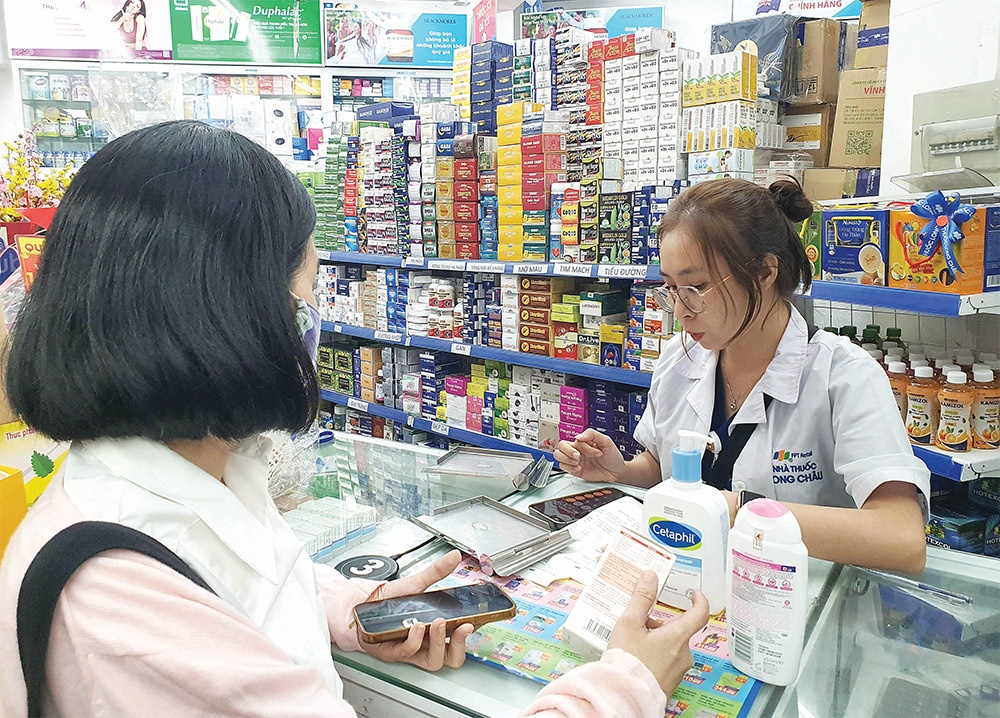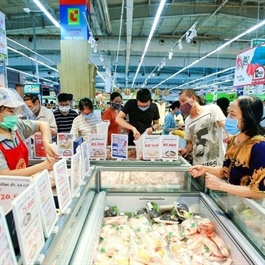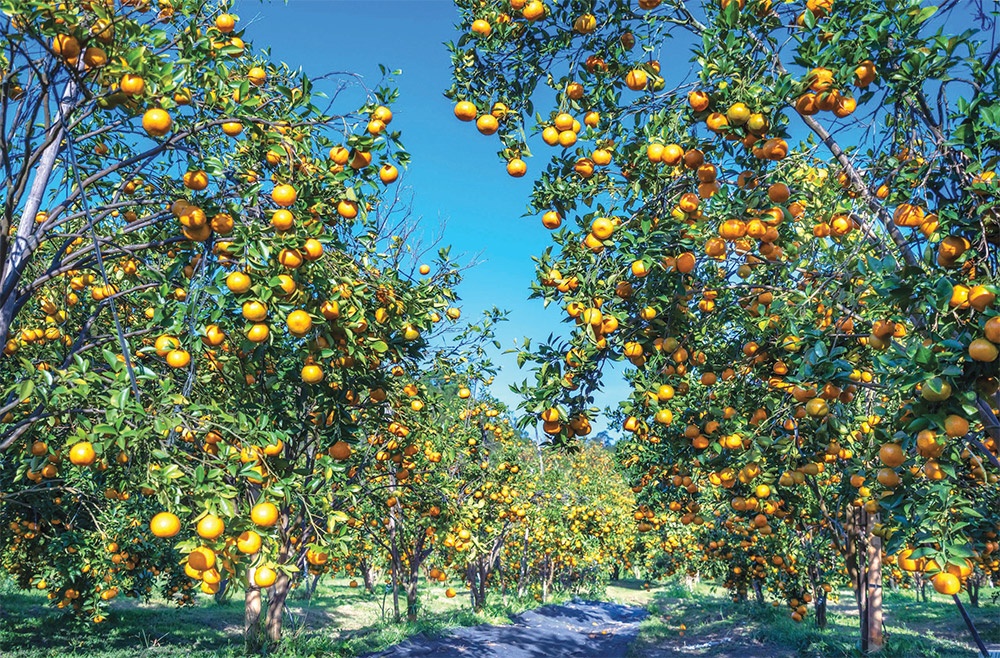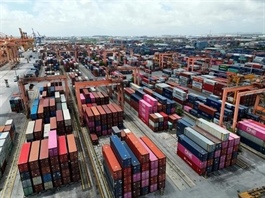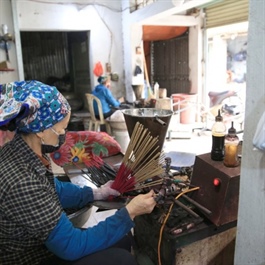Sowing change reaping sustainable value
Sowing change reaping sustainable value
Changing cultivation methods associated with changing farmers’ awareness will help Vietnam’s agricultural sector reap stronger values. Le Minh Hoan, Minister of Agriculture and Rural Development, takes a look at this sustainable restructuring mission.

In December, in the framework of an international festival for Vietnam’s rice industry in the Mekong Delta province of Hau Giang, the Ministry of Agriculture and Rural Development launched a project to develop one million hectares of high-quality rice cultivation with low emissions, associated with green growth in the Mekong Delta region towards 2030.
This event makes Vietnam the first country to build and develop a plan like this, demonstrating its responsibility to the international community. It was also a landmark event for the agricultural sector in the process of joining Vietnam in realising the goal of promoting socioeconomic development and building an emission-mitigating economy.
If the agricultural sector is determined to be a national advantage and a pillar of the economy, rice production is considered a key sector that helps ensure national food security and supports the country’s economic development, as well as demonstrating Vietnam’s responsibility in ensuring the international food system.
During the implementation of the project, some new policies will be piloted, such as payment of carbon credits and the development of a circular agricultural economy that makes the most of by-products from rice production.
Successful pilots in the Mekong Delta will be expanded nationwide. From those new and breakthrough policies, the project will boost livelihoods and ensure sustainable development for rice farmers - who are the subjects and factors determining the success of the agricultural and rural development.
Over the next two years, the primary focus is consolidating 184,000 hectares covered by the VnSAT project. This provides a foundation for imminent tasks and reorganises farmers into cooperative groups, followed by collaboration with businesses.
This initiative will eventually reorganise the production system along the value chain, applying sustainable farming practices to increase the value and promote sustainable development of the rice industry. Thus, the project is to play a key role in the development of Vietnam’s eco-agriculture, which will fundamentally transform the rice sector in the direction of sustainability. It aims to increase values, sustainably develop the country’s rice industry, increase incomes for rice farmers, protect the environment, and contribute to realising Vietnam’s environmental commitment.
Under the project, greenhouse gas emissions from rice farming are expected by reduced by more than 10 per cent and low-emission, high-quality rice will account for over 20 per cent of the total for export in the entire specialised rice farming region.
Throughout the implementation of the project, there will be experimental trials of new policies, including paying carbon credits based on performance, focusing on low-emission production tied to green growth, and developing an agricultural economy with a circular approach.
The project will not only help reduce emissions but also increase productivity, reduce input costs, and overall bring a 30 per cent increase in profits for farmers, thus helping Vietnam achieve goals in protecting the environment and improving farmers’ lives as well as food security.
Comprehensive restructuring
From 2026 to the end of the decade, Vietnam will establish new regions specialising in good agricultural practices, demanding substantial infrastructure investments. Therefore, capital is imperative for the modernisation and upgrading of the irrigation system. Subsequently, during this period, the registered provinces will undergo scrutiny based on the criteria of infrastructure, production organisation, business participation, and sustainable rice growth.
Plans such as the one mentioned cannot take place in conferences or seminars, or only in resolutions or action plans. The new restructure must be in the fields, in every farmer’s house, in the thoughts of farmers. Farmers, despite playing a central role, face numerous challenges, including old-style rice cultivation techniques with the majority of sowing methods and continued reliance on fertilisers and pesticides that they have not yet used correctly.
Thus, the important task is to change their awareness, and simultaneously promote their role in developing sustainable agriculture.
In addition, we cannot change cultivation methods or farmer perceptions in the course of one or two crops. We need perseverance and persistence year by year, and it is important to have the participation and accompanying of cooperatives and the business community.
After recognising the key factors, the next step is to change farmers’ awareness. Millions of farmers need to be trained properly. They need to be gathered into cooperatives instead of going alone without common goals. Farmers need to clearly understand their goals and the path to get there.
The forces to gather the farmers were the farmers’ unions and the agricultural extension associations from the central to the localities. Now is the time for the farmers’ unions and agricultural extension associations to show their roles as friends of farmers.
Paving the way
The restructuring of the farms will be just as successful when their capacity is improved. National strategy on agriculture, farmers, and rural areas for this decade clearly states that to contribute to improving awareness, capacity, qualifications, and education for farmers and rural residents, it is the task of the entire system, in which agricultural extension associations have a pivotal role.
These unions and associations’ activities play a crucial role in supporting farmers in innovation and agricultural development. They are the clues to implement training programmes for farmers and rural workers; propagate and mobilise farmers to participate in vocational training; and consulting on careers, employment, and establishing businesses.
They are also the clues to gather and encourage farmers to participate in building advanced, smart, and responsive rural areas using digital transformation.
In addition, it is necessary to establish stronger commitments in the companionship between farmers and businesses and processing enterprises. At present, often, some parties do not trust each other. Thus, many businesses are crying foul as farmers are not honouring deals with them to sell agricultural products and are instead seeking to sell their produce to others for higher prices.
It is necessary to make the farmers understand that the business community is the driving force of the market. Without businesses, there is no market, so businesses play a leading role in each agricultural sector. Businesses also contribute to positioning brands for the agricultural products of localities and farmers.
In addition, businesses have first-hand information about the international and domestic market, the set standards, and understand market signals, thereby they become a bridge to bring farmers’ products to the international markets.
The collaboration between businesses and cooperatives specialising in the likes of growing coffee, durian, and rice is a win-win companionship that will help to gather farmers and contribute to expanding the businesses’ raw material areas and be self-sufficient in supply. This is also a solution to create stability for the output of agricultural products.
The business side also needs to take time to establish a close relationship with cooperatives and households to create trust for farmers.







